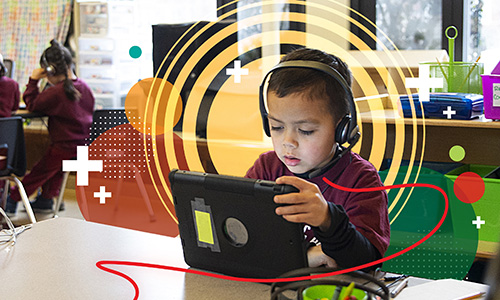Blog article
How Teachers and Families Can Help Students Build Reading Fluency Over the Summer
2019

Description
In this Education Post article, Cindy Jiban discusses research showing that kids in the primary grades typically return from summer break with slower and less accurate oral reading. But this doesn’t have to be the case: we can set kids up for growth in fluency instead.
Visit the blogRelated Topics


Spanish MAP Reading Fluency content guide
This document presents the test design and specifications for Spanish MAP Reading Fluency.
By: Sara Velazquez, John Newburn, Fang Peng, Carmen Hall, Kayla McLaughlin, Teresa Krastel
Products: MAP Reading Fluency, MAP Spanish
Topics: Test design, Academic content, Assessments in Spanish


English MAP Reading Fluency technical report
This technical report documents the processes and procedures employed by NWEA to build and support the English MAP Reading Fluency assessment.
By: Fang Peng, Kang Xue, Carmen Hall, John Newburn
Products: MAP Reading Fluency
Topics: Test design, Computer adaptive testing, Reading & language arts


Predicting Amira Reading Mastery Based on NWEA MAP Reading Fluency Benchmark Assessment Scores
This document presents results from a linking study conducted by NWEA in May 2024 to statistically connect the grades 1–5 English Amira Reading Mastery (ARM) scores with the Scaled-Words-Correct-Per-Minute (SWCPM) scores from the MAP Reading Fluency benchmark assessment taken during Fall and Winter 2023–2024.
By: Fang Peng, Ann Hu, Christopher Wells
Products: MAP Reading Fluency
Topics: Computer adaptive testing, Early learning, Measurement & scaling, Reading & language arts


MAP Reading Fluency with Coach Evidence Base
This document provides an overview of the research underlying MAP Reading Fluency with Coach’s AI-powered intelligent reading tutor and the research on key elements of early literacy instruction. It describes the components of the MAP Reading Fluency with Coach pedagogy and the research base supporting each component.
By: Amy Endo
Products: MAP Reading Fluency
Topics: Early learning, Empowering educators, Innovations in reporting & assessment, Reading & language arts


Effective summer programs: Practical guidance for district leaders
This report dives into the research on summer programs, their implementation and design, as well as the efficacy of those programs for literacy, math, and social-emotional learning (SEL) outcomes. It also provides recommendations for district leaders to use as a framework for planning and implementing effective summer programming.
By: Miles Davison, Jazmin Isaacs, Sofia Postell, Michael Gaddis, PhD, Ayesha K. Hashim, Susan Kowalski, Karyn Lewis
Topics: COVID-19 & schools, Growth, Guidance, Seasonal learning patterns & summer loss


Typical learning for whom? Guidelines for selecting benchmarks to calculate months of learning
To describe the impact of the COVID-19 pandemic on students, researchers have translated test scores into months of learning to claim how many months/years students are behind in school. Despite its perceived accessibility, there are major downsides to this translation. To inform future uses by researchers and media, we discuss in this brief how to calculate this metric as well as its trade-offs.
By: Megan Kuhfeld, Melissa Diliberti, Andrew McEachin, Jon Schweig, Louis T. Mariano
Topics: COVID-19 & schools, Equity, Growth, Growth modeling, Seasonal learning patterns & summer loss


This study evaluates the effects of asking items throughout the passage (i.e., embedding items) to achieve a more precise measure of reading comprehension by removing barriers for students to demonstrate their understanding. Results showed a significant impact of embedding comprehension items within reading passages on the measurement of student achievement in comparison to answering items at the end of the passage.
By: Meg Guerreiro, Janice Johnson
Topics: Equity, Innovations in reporting & assessment, Reading & language arts


